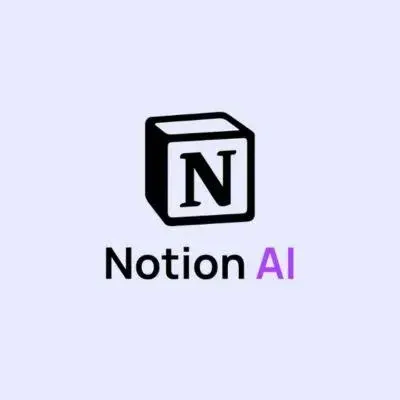Best AI Tools for Students — Summaries, Flashcards, Tutors (Copyable Prompts)
🔥Intro
It’s 2 a.m. The textbook looks like a small car. You have zero coherent notes and one exam that will not forgive laziness. What if 15 minutes and two cheap AI moves could turn that mess into exam-ready memory? This guide hands you a tested, scroll-stopping microflow — copyable prompts, meme-ready micro-challenges, and SEO-friendly headlines — so you finish feeling like a wizard, not a zombie.
The 15‑Minute AI Study Flow (step‑by‑step)
Follow this exact sequence tonight. It’s optimized for speed, retention, and shareability.
- Prep (1 minute): Open the chapter PDF or paste messy notes. Pick a goal: definitions, formulas, or 10 high-yield Q&A.
- Summarize (3 minutes) — Use a Summarizer (copy prompt):
- Convert to Active Recall (6 minutes) — Flashcards + SRS (copy prompt):
- Rapid Review (5 minutes) — Focus only on the 6 HARD cards, then sweep the rest. Screenshot progress for social proof (#AIStudyHack).
AI Study Tool Profiles (in-depth)
ChatGPT / GPT-4o variants — Conversational study assistant
Why use it: Brainstorm ideas, explain concepts at any level, generate practice questions, draft essays, debug code, and create custom study bots.
Key features: File uploads (premium), custom GPTs, multimodal inputs (text, image, audio in GPT-4o/GPT-4o+), long-context chats, summarization.
Pricing: Free GPT-3.5; Plus $20/mo; Teams/Enterprise pricing for advanced features.
Tips: Use role prompts ("You are my exam coach"); ask for multiple formats (outline, bullets, ELI5, quiz questions); use custom GPTs for subject-specific work.
QuillBot — Paraphrasing, summarizing, citation help
Why use it: Rewrites text for clarity, generates citations, and condenses long readings quickly.
Pricing: Free limited tier; Premium ~$4–10/mo for unlimited paraphrasing and advanced features.
Tips: Use synonym sliders and tone modes for study-specific rewrites; compare color-coded changes to learn sentence structure.

Grammarly — Grammar, clarity, plagiarism check
Why use it: Final draft polish, tone control, and plagiarism checks for essays and applications.
Pricing: Free basic; Premium ~$12/mo; business/edu plans available.
Tips: Run plagiarism checks before submission; use intent/tone presets for formal academic emails and statements.

Notion AI — Study planner, note-taking, flashcards
Why use it: Centralize notes, auto-generate flashcards/quizzes, create study plans and templates for semester tracking.
Key features: AI-generated flashcards, quizzes, summaries; deep workspace integration; templates for students.
Prompt: "Create a course review outline with 6 subtopics; for each subtopic list 2 must-know facts and 2 recall questions."
Quizlet — Flashcards, Q-Chat, adaptive quizzes
Why use it: Quick deck creation, spaced practice, massive pre-made library, Q-Chat for conversational practice.
Pricing: Free; Quizlet Plus ~$7.99/mo for advanced modes.
Tips: Use voice-to-text to speed card creation; import Notion AI outputs for instant decks.

Otter.ai — Lecture transcription and searchable notes
Why use it: Record lectures, get timestamped searchable transcripts, auto-summaries, speaker tags, and Otter Chat Q&A on transcripts.
Pricing: Free up to ~300 min/month; Premium plans for more storage and features.
Tips: Sync calendar for automatic recording; use transcripts as input for summarizers and flashcard generators.

Duetoday — All-in-one AI study platform
Why use it: Convert lectures to flashcards, mind maps, summaries, and get on-demand AI tutor explanations in one place.
Pricing: Free basic; premium for unlimited quizzes, advanced chat, and mind maps.
Tips: Use "Ask my notes" for dynamic Q&A and export mindmaps to flashcards for holistic review.
Turbo AI — Live note-taker, flashcards & collaboration
Why use it: Editable notes from any input, auto quiz generation, live collaboration and study-sharing folders.
Tips: Produce study podcasts from notes and organize by semester for repeated review.
StudyX — Homework helper and multi-function study assistant
Why use it: Step-by-step solutions, automated flashcards from uploads, progress analytics, and test simulations.
Tips: Use image/PDF uploads to convert textbooks into ready-made quizzes and targeted flashcard decks.
Emerging & Niche Tools to Watch
- Mindgrasp — Note-to-quiz and personalized learning nudges.
- Penseum — Best-in-class note→flashcard builders.
- Gauth — Android-first math Q&A engine.
- StudyMonkey.ai — Conversational adaptive tutor.
- Scite AI / SciSpace — Research synthesis and literature review platforms.
- Paperpal — Discipline-specific academic writing assistance.
These tools often fill specific gaps (research, math tutoring, citation workflows) and are useful additions to a core study stack.
Quick Comparison (platform, best use, cost)
| Tool | Best for | Entry cost | Standout feature |
|---|---|---|---|
| ChatGPT | Concepts, Q&A, summaries | Free / $20+mo | Custom GPTs, multimodal |
| Notion AI | Workspace + flashcards | Free / Workspace plans | Deep integration, templates |
| Quizlet | Flashcards & adaptive practice | Free / $7.99+mo | Q-Chat, massive decks |
| Otter.ai | Lecture transcripts | Free / Premium | Speaker tagging, timestamps |
| Duetoday | All-in-one study packs | Free / Premium | Mindmaps + AI tutor |
| StudyX | Homework help + analytics | Free / Premium | Snap-to-solve, progress tracking |
| QuillBot | Paraphrasing & citations | Free / Premium | Paraphrase modes |
| Grammarly | Proofreading & tone | Free / Premium | Plagiarism & tone detection |
Rare, High-value Insights Most Guides Miss
- Two-pass summarizer hack — Ask for a heading-level outline first, then generate bullet summaries per heading for structured flashcards and fewer hallucinations.
- Tag-based review packs — Use tags like "Exam-Day-1" or "High-Yield-Week" so your note-AI can export targeted revision files.
- Cloze density rule — Blank only 1–2 elements per cloze card; avoid whole-sentence deletions for better retention.
- Social proof loop — Short screenshot + 1-line tip posts outperform long threads for engagement and backlinks.
- Citation safety net — After any AI summary, run a "Flag claims that need citations" prompt and verify flagged lines only.
SEO Strategy: Low-Competition, High-Intent Keywords
Primary long-tail targets (use naturally in H2/H3 and bullets):
- AI tools that summarize textbooks automatically
- best AI quiz generators for college
- how to create Anki cloze cards from PDF
- 15 minute AI study hack
- turn lecture notes into flashcards with AI
Secondary question queries for featured snippets: "Can AI make flashcards from a PDF?", "How to use AI to study fast for finals", "What is the best AI for study summaries 2025".
Engagement Tricks, Visuals, and Shareability
- Do this with me now: paste 2 paragraphs and run the summarizer prompt — show before/after screenshots inline.
- Progress meter GIF: visualize 90→15 minute compression steps.
- Meme-ready callout: "When the textbook is 80% fluff" + reaction image for socials.
Visual suggestions: hero GIF (2 a.m. desk → flashcards), 7s inline GIFs for each tool, 15-minute timeline diagram, and screenshot templates with "Share this!" overlay.
Reproducible Workflows (copy & use)
Workflow 1 — Chapter to Flashcards (fast)
- Upload PDF to a Summarizer → generate 6 bullets + 12 Q&A.
- Run Flashcard prompt to create 24 cloze cards; tag HARD cards.
- Export to Anki/Quizlet; run 5-minute SRS focusing on HARD.
Workflow 2 — Lecture to Study Pack
- Record lecture (Otter/Zoom) → transcript.
- Paste transcript into Summarizer → 10 Q&A + 6 bullets.
- Notion AI: create study plan + export flashcards to Quizlet.
Workflow 3 — Research to Lit Review
- Use Scite AI/SciSpace to gather papers and summaries.
- Ask ChatGPT to synthesize a 500-word literature review with citations flagged for verification.
- Run Paperpal/Paperguide for discipline-specific editing.
Get the 2 Prompts + One‑Page Checklist
Instant kit: paste the prompts into your chosen AI tool, make the cards, run a 5‑min SRS, screenshot, and share #AIStudyHack.
Before (excerpt): "Oxidation-reduction reactions involve electron transfer between species; electrodes in electrochemical cells produce voltage based on reaction potential."
After (AI summary snippet): "Redox reactions move electrons from one chemical to another, creating a measurable voltage at electrodes; key concepts: oxidation = lose electrons, reduction = gain electrons."
On click: prompts and checklist copy to clipboard. Offer PDF download or email delivery separately if you want to gate the checklist.


.png)









0 Comments